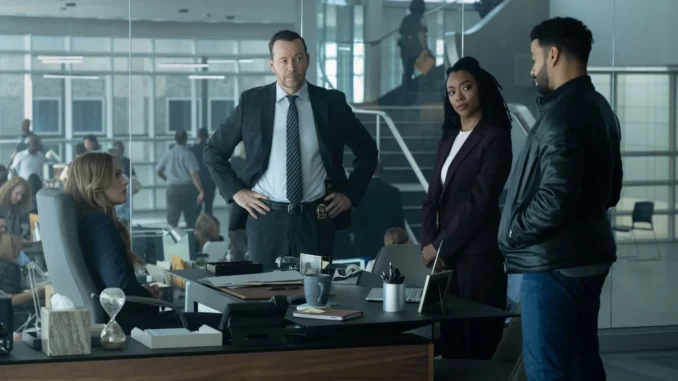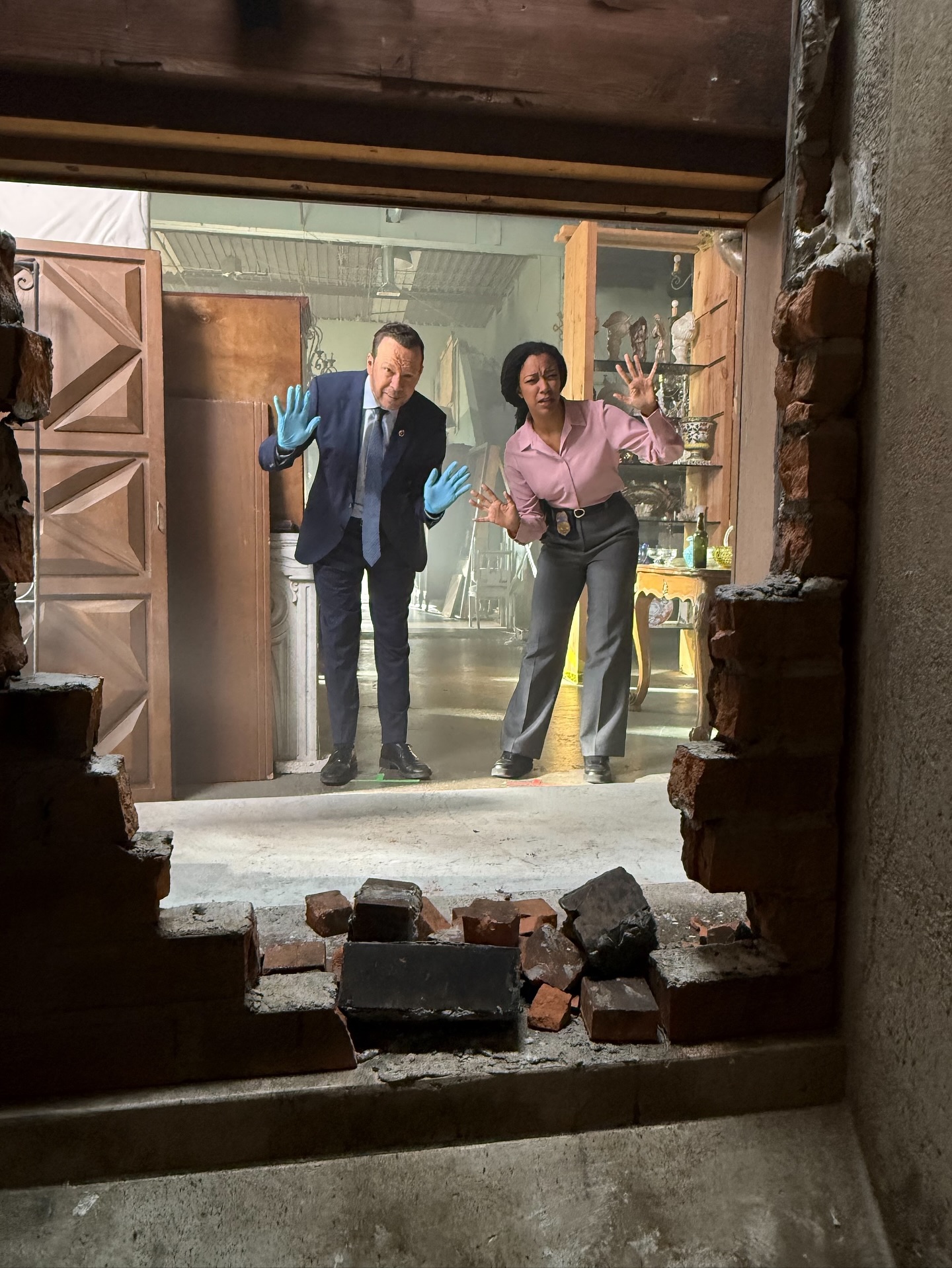
Few on-screen partnerships have sparked as much fan devotion — and debate — as Danny Reagan and Maria Baez from CBS’s Blue Bloods. For over a decade, Donnie Wahlberg and Marisa Ramirez have crafted one of television’s most enduring detective duos, blending professional respect with unmistakable chemistry. But where did it all begin, and how did it evolve into the emotional cornerstone that would eventually shape Boston Blue? Here’s an in-depth look at their journey from colleagues to something deeper.
Season 3: A New Partnership Forms
Baez entered Blue Bloods in Season 3, filling the space left by a revolving door of Danny’s previous partners. From their first case together — a murder investigation involving a kidnapped child — their rapport was instant. Unlike his earlier partnerships marked by friction, Baez met Danny’s intensity with quiet steadiness. She wasn’t intimidated by his methods; she matched them.
In interviews, Ramirez has credited Wahlberg’s improvisational energy for shaping their early scenes. “He doesn’t just play the script — he plays the moment,” she said in 2015. That spontaneity became the foundation of their connection.
Seasons 4–6: Mutual Trust and Growing Respect
Over time, the duo developed a rhythm built on loyalty and unspoken understanding. Baez became Danny’s moral compass, often challenging his tendency to act impulsively. Episodes like “Bad Blood” and “Down the Rabbit Hole” showcased their shared dedication, with moments of levity that softened the show’s otherwise heavy tone.
Fans began to pick up on subtle gestures — lingering glances, half-smiles, concern that felt personal. The writers never pushed romance, but the emotional intimacy was undeniable.
Season 7–9: Tragedy and Transformation
Linda Reagan’s tragic death marked a turning point. For Danny, grief defined his every decision; for Baez, supporting him without overstepping became a quiet act of devotion. In “By Hook or by Crook,” she reminded him, “You don’t have to be okay right now — just don’t stop trying.” It was a simple line that encapsulated their entire bond.
During these seasons, Blue Bloods resisted romanticizing their partnership, instead leaning into emotional realism. Danny’s mourning process was treated with dignity, and Baez’s presence — constant but never intrusive — showed viewers that love can exist without labels.
Seasons 10–13: The Slow Burn Intensifies
By the show’s later seasons, the chemistry between the two became impossible to ignore. In “Fire Drill,” a brief exchange about dating lives caused fans to flood social media with the hashtag #TeamBaez.
The Season 12 finale hinted more openly at their emotional connection when Baez became godmother to Danny’s grandchild — a symbolic inclusion in the Reagan family circle. Showrunner Kevin Wade later admitted, “We know what the audience wants, but part of their magic is restraint. Once you cross that line, it’s hard to go back.”

The Boston Blue Connection
Boston Blue finally acknowledges what Blue Bloods only suggested. In Danny’s move to Boston and Baez’s subsequent visit in Episode 4, their history becomes both context and catalyst. The spinoff doesn’t rewrite their story; it extends it.
Their relationship represents something rare on network television — a partnership built on empathy, shared trauma, and time. Rather than sudden romance, it’s the slow evolution of trust and tenderness between two people who’ve seen too much yet still believe in something good.
Why Their Story Endures
The appeal of Danny and Baez lies in balance. They’re equals, not archetypes. He’s brash but loyal; she’s measured but emotionally available. Together, they humanize the procedural formula that Blue Bloods helped define.
Critics often note that the show’s enduring success isn’t just due to its cases or family dinners, but to the relationships that feel earned, not engineered. Danny and Baez exemplify that ethos.
As Boston Blue continues, fans will be watching closely to see if the long-simmering affection between them finally finds closure. But even if it never turns overtly romantic, their story — spanning over a decade, two series, and countless near-confessions — has already left an indelible mark on television’s portrayal of partnership.
“Sometimes,” Danny once said, “the person you trust most isn’t the one who saves your life — it’s the one who stays after.”
For Danny and Baez, that’s always been the truth.